Left of Centre
Ahmad Farouk Musa || 21 October 2013
“There should exist among the citizens neither extreme poverty nor, again, excessive wealth, for both are productive of great evil” [Plato, The Republic]
Any move for a more robust democracy and the establishment of a civil state or in the Islamic Party of Malaysia (PAS) terminology: a state of care and opportunity; is simply futile without a comprehensive economic agenda. The recent developments in the Middle East and North Africa post-Arab Spring suggested that any transformation of political nature would be void of values where there was no concomitant change in the economic agenda. Hence it is imperative for the Islamic Party who vies the change in government to pay particular attention to this matter.
 The Muslim Brotherhood or more famously known as al-Ikhwan; probably the most organized civil society in Egypt for example have been criticized for their economic agenda that prioritize the one percent of the population. They are known now as “the Brotherhood’s one percent”, a term initially coined by the world protest movement Occupy.
The Muslim Brotherhood or more famously known as al-Ikhwan; probably the most organized civil society in Egypt for example have been criticized for their economic agenda that prioritize the one percent of the population. They are known now as “the Brotherhood’s one percent”, a term initially coined by the world protest movement Occupy.
These one-percent refer to the tiny wealthy segment of the ruling elite that benefits from the economic policy as compared the ninety-nine percent who is outside the circle among the ordinary citizens. There was no significant change in the neoliberal policy of the previous regime that benefitted a few wealthy entrepreneurs with emphasis on free market and privatization except curbing corrupt practices.
Critics maintained that with this neoliberal policy, it would not lessen the burden of funding of the state but on the other hand the private sector would be more dependent on state patronage at the expense of the taxpayers and consumers. Hence the essence of this privatization project mainly leads to the accumulation of wealth of the one-percent.
The liberals and free-market proponents often argue that the creation of the wealthy one-percent would then in turn lift up the poor with them. However history has shown that man’s greed would certainly promised failure for such a noble idea. The very fact that the revolution erupted in the Middle East and North Africa region was a witness to such a failure.
Thus an approach to just economic system that would stay true to the spirit of social justice is probably similar to the one laid out by the late Brotherhood authority in economics, Abdel-Hamid el-Ghazali in that:
“Islam and its economic system and approach to development is a real, continuous and successful war on all forms of economic injustice – meaning exploitation – through a distinct and absolute ban on usury and deceit; monopoly and hoarding; extravagance and tricking; cheating and undervaluation; fraud and deception; bribery and nepotism. And all other forms of unjustly taking away people’s money, as well as all forms of improper practices in economic activities in production, distribution and consumption.”
The failed economic agenda
The main criticism against any Islamist party in the modern world today – especially the Brotherhood - is their economic policy that would set them apart from other ideological forces. What is clear is that it would be safe to assume that there are no fundamental differences between the Islamist to those of any authoritarian regimes. So one may ask a very pertinent question: Do Islamists have an economic agenda different from the one by their predecessors?
 Now, the usual term being used by many Islamists is “Islamic economy”, a controversial term among the academic and intellectual circles. This term basically denotes a distinct economic system that is set apart from the “capitalist and socialist ideologies”. The problem is that there is a very distinct separation between what is supposed to be Islamic values to that of the practice in such system. A clear example is that of the so-called “Islamic banks” that basically replaces conventional terms with Islamic (read: Arabic) terms but seemed to be more repressive than the conventional banks.
Now, the usual term being used by many Islamists is “Islamic economy”, a controversial term among the academic and intellectual circles. This term basically denotes a distinct economic system that is set apart from the “capitalist and socialist ideologies”. The problem is that there is a very distinct separation between what is supposed to be Islamic values to that of the practice in such system. A clear example is that of the so-called “Islamic banks” that basically replaces conventional terms with Islamic (read: Arabic) terms but seemed to be more repressive than the conventional banks.
This concept of Islamic economy has turned into a very profitable business banking on the ignorance of the masses and the deceitful usage of Arabic terminologies that were construed as Islamic. And Islamic clerics with doctoral degrees in banking and economics are the main collaborators since they participated in laying down the legal and doctrinal basis of the economic transactions and endorsed the banking products as sharia compliant. In actual sense such transactions are in direct conflict with the values of justice that underlies the basis of Islamic economy.
More apparent is the dichotomy between what is stipulated in the Islamists’ economy and their actual policy. Many of the actual economic policies on the ground are not much different from the capitalist practices that prevail during the era of the former regime. This has led to many researchers to describe the Brotherhood’s economic vision as a neoliberal vision similar to that of its predecessor. Islamists also failed to realize that such policies were among the major causes that sparked the revolt against the previous regimes. In fact, one of the defining slogans of the Egyptian Revolution was the chant of “bread, freedom and social justice”. As Oxford University Professor Walter Armbrust states:
“Egypt and Tunisia are the first nations to carry out successful revolutions against neoliberal regimes’, and the failure of neoliberalism in Egypt was one of the prime motivations for people to pour out onto the streets.”
Furthermore, there appears to be a separation between the Islamist ideological discourse and their economic behavior. On one hand they talked about transparency, accountability and social justice but these are met with inflated wealth among “Islamist” businessmen at the expense of the poor. It is basically a theory that focuses on the wealthy by increasing their numbers – by raising the ceiling that was placed on the Brotherhood’s one percent – which is believed would in turn lift up the poor with them. But then the failure of these arguments and projects are the very reason why there was a revolution in the first place.
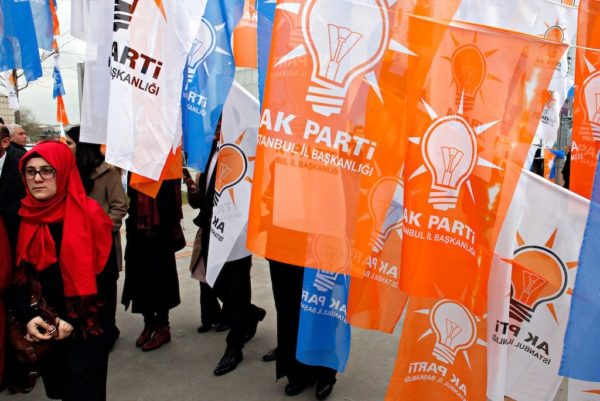 Without doubt, many Islamists derived their inspiration from the economic model provided by the Turkish Justice and Development Party (AKP) that has been touted to be a success in elevating the country’s gross domestic product (GDP) and paid the last installment of its debt to the International Monetary Fund. However it is of note that in the last decade Turkey has borrowed increasingly more in the international financial markets, and in particular the foreign debt of the private sector has reached unforeseen levels. This is obviously a very fragile situation since when the private debtors go bankrupt; these private losses are often socialized. Through its economic policies, the AKP has been imposing its neoliberal agenda by increasingly commercializing public services, creating areas of rent for large corporations and eroding the living standards and security of a significant part of the working class.
Without doubt, many Islamists derived their inspiration from the economic model provided by the Turkish Justice and Development Party (AKP) that has been touted to be a success in elevating the country’s gross domestic product (GDP) and paid the last installment of its debt to the International Monetary Fund. However it is of note that in the last decade Turkey has borrowed increasingly more in the international financial markets, and in particular the foreign debt of the private sector has reached unforeseen levels. This is obviously a very fragile situation since when the private debtors go bankrupt; these private losses are often socialized. Through its economic policies, the AKP has been imposing its neoliberal agenda by increasingly commercializing public services, creating areas of rent for large corporations and eroding the living standards and security of a significant part of the working class.
While Turkey’s GDP has increased, the income distribution is very skewed. And if the Gini coefficient is any measure of income inequality, then India is said to beat Turkey by far, .34 to .40 in 2010 respectively where the lower the Gini coefficient, the lower the income inequality. Unfortunately the delusory success story of increase in GDP has reinforced misplaced faith in free market despite the fact that the social indicators of development such as the number of people living below the poverty line took a downturn after 2008. The AKP has somehow managed to amplify the neoliberal policies that have been in existence since 1990s. This further attests to the fact that “Islamists” do not have their own economic agenda apart from a continuation of the prevailing capitalist system. And the planned urban restructuring of Taksim Square and the destruction of Gezi Park has to be understood in the context of state-driven privatization projects propelled by the underlying neoliberal policy.
The unfinished revolution
History has it that the Arab Spring started in the Tunisian town Sidi Bouzid on 17 December 2010 when Mohammad Bouazizi set himself alight. It sparked an unrest that led to a revolution that spread across Egypt beginning on 25 January 2011 with massive mobilization in Midan at-Tahrir that resulted in the fall of Hosni Mubarak on 11 February.
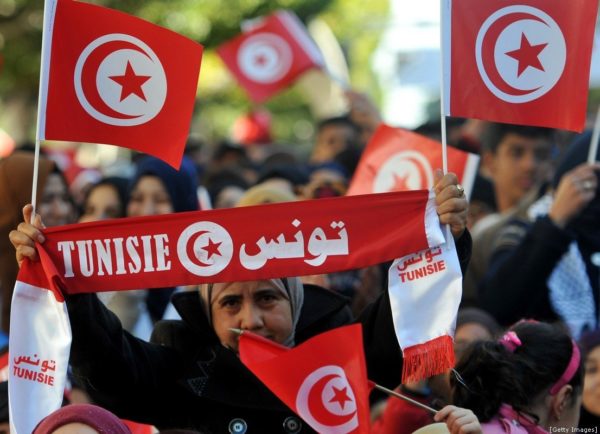 Obviously the spark for the Tunisian Revolution that spread to Egypt and elsewhere was demonstrative of the dual action of economic deprivation and political repression in the region. Bouazizi was “everyman” example of the problems plaguing the region: the economic hardship on one hand and the harrowing abuse he suffered at the hands of the authorities who took away his only income.
Obviously the spark for the Tunisian Revolution that spread to Egypt and elsewhere was demonstrative of the dual action of economic deprivation and political repression in the region. Bouazizi was “everyman” example of the problems plaguing the region: the economic hardship on one hand and the harrowing abuse he suffered at the hands of the authorities who took away his only income.
In understanding the relationship between the economic and democratic demands, a poll conducted by the International Republican Institute (IRI) showed that economic grievances rated the highest in people’s mind. Most people – 63 percent – cited unemployment as the biggest problem facing Egypt. Another 30 percent cited poverty and only 6 percent cited the lack of democracy and free elections.[1] A Pew Research Centre poll also showed a similar trend where economic woes were put ahead of democratic demands.[2] It was clear that the desire to build a socio-economic system based on dignity, liberty and equity was the main demand of the protestors in the entire region and what lead them to fight for this change.
In a global environment of neoliberalism the Arab revolutions entered, spontaneous popular revolts against these policies were catalyzed by the socio-economic conditions and political repression of their respective states. Democracy in itself does not necessarily guarantee the redistribution of wealth or a decrease of inequality within a country.
As we have seen, the Brotherhood and its Freedom and Justice Party (FJP) are committed to a “free-market economy with a strong private sector” and emulating the Turkish model. Many members of the Brotherhood have large business interests and state policy was designed to enable the private sector and favour pro-market measures. All these was exacerbated by a situation in which the international financial institutions are recommending the continuation and expansion of neoliberal policies in Egypt. It could be safely concluded that the demand for social justice is unlikely to be safe in the hands of the Brotherhood.
Democratic reform alone would not tackle the issues of participation, namely the socio-economic deprivation that makes engagement with democracy impossible for many, or overcome all of the limitations a national democracy faces in the global economy. Tackling socio-economic issues such as poverty and inequality is of paramount importance for a robust and developing democracy. Hence improving the socio-economic conditions is the most practical and long-term answer to the revolution.
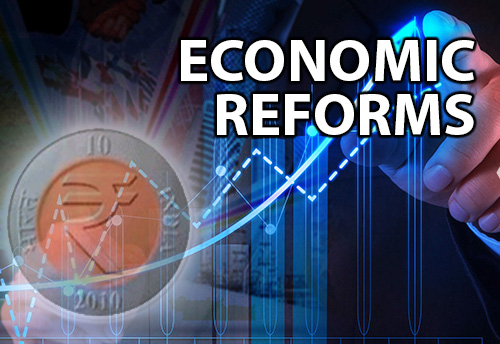 Obviously, taking steps towards economic reform and the improvement of living conditions must be directly linked to the redistribution of income and wealth, and resetting the economy to be more accommodative towards the ninety-nine percent. Islamists should not be complacent only with their rhetoric that everything will be settled when an Islamic state is established and sharia is implemented. The real challenge out there is whether they have a just economic policy that is equitable to all irrespective of race and creed and that they uphold the true spirit of democracy and respect individual rights, tolerance, gender equality and pluralism.
Obviously, taking steps towards economic reform and the improvement of living conditions must be directly linked to the redistribution of income and wealth, and resetting the economy to be more accommodative towards the ninety-nine percent. Islamists should not be complacent only with their rhetoric that everything will be settled when an Islamic state is established and sharia is implemented. The real challenge out there is whether they have a just economic policy that is equitable to all irrespective of race and creed and that they uphold the true spirit of democracy and respect individual rights, tolerance, gender equality and pluralism.
The way ahead
History has revealed two major trends: the failure of capitalism to provide a decent standard of living for the majority of people, and the spontaneous eruption of resistance to the inequality and injustice that this entails. For political justice in a modern democratic society is about equality and liberty. If either the liberty or equality of its citizens is out of balance, justice is compromised. Equality means fairness in the full sense of the word. No one should be disadvantaged by bad luck and no one should be privileged due to good luck. At the end of the day, equality derives from fundamental human moral worth – we all have an equal right to a chance to live the good life. Only once when we have this basic resource equality requirement fulfilled, can we exercise freedom in any meaningful sense.
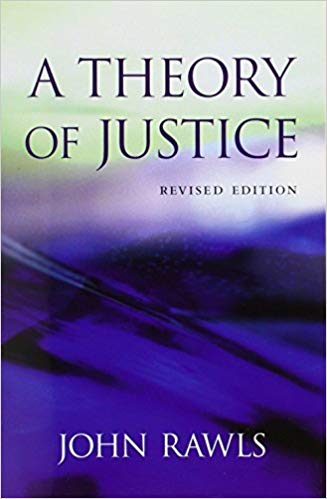 John Rawls in his book “A Theory of Justice” has described the importance of achieving justice in a society. Justice for Rawls is distributive. This does not mean that distributive justice must be about rectifying inequalities through redistributing income. Rather, distribution is about primary goods defined as “what persons need in their status as free and equal citizens, and as normal and fully cooperating members of society over a complete life.” In other words, these are things like rights, opportunities, liberties and self-respect. Unequal distribution of wealth is not bad in and of itself, but bad because it leads to inequality of the basic goods needed to live a good life. Therefore we could assess whether a state is just or not by assessing the distribution of basic goods.
John Rawls in his book “A Theory of Justice” has described the importance of achieving justice in a society. Justice for Rawls is distributive. This does not mean that distributive justice must be about rectifying inequalities through redistributing income. Rather, distribution is about primary goods defined as “what persons need in their status as free and equal citizens, and as normal and fully cooperating members of society over a complete life.” In other words, these are things like rights, opportunities, liberties and self-respect. Unequal distribution of wealth is not bad in and of itself, but bad because it leads to inequality of the basic goods needed to live a good life. Therefore we could assess whether a state is just or not by assessing the distribution of basic goods.
We have seen that the Arab Spring came about not because of an “Islamic Resurgence” but due to the economic constrain and an unequal distribution of economic growth. Vast empirical research has shown that the wide gap in inequality is not only detrimental to future growth but also damaging to the stability of the country. Plato’s Republic has raised the issue of unequal distribution of economy and reminded us of its consequences. That a fatal disorder would ensue should limits on wealth on both sides are not set and resulted in widening the gap between the haves and haves not. For social harmony could only be attained through an equal society. Otherwise chaos would ensue, as has repeatedly being shown from our history.
“Any city however small, is in fact divided into two, one the city of the poor, the other of the rich; these are at war with one another.”
[Plato, Book IV: The Republic]
Footnotes:
[1] The International Republican Institute (IRI), ‘Egyptian Public Opinion Survey, April 14 – April 27, 2011’ (Williams and Associates, 2011), p. 11. Available at: http://www.iri.org/sites/def ault/f iles/2011%20June%205%20Survey%20of %20Egyptian%20Public%20Opinio n,%20April%2014-27,%202011_0.pdf
[2] Pew Research Center, ‘Egyptians Embrace Revolt Leaders, Religious Parties and Military, As Well’. (Washington DC, Pew Research Center, 2011), p. 2. Available at: http://pewglobal.org/files/2011/04/Pew-Global-Attitudes-Egypt-Report-FINAL-April-25-2011.pdf
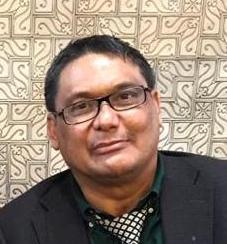 Dr Ahmad Farouk Musa is a Director at the Islamic Renaissance Front and an academic researcher at Monash University Malaysia. This essay appears in The Malaysian Insider at http://www.themalaysianinsider.com/sideviews/article/left-of-centre-dr-ahmad-farouk-musa and Malaysiakini at http://www.malaysiakini.com/news/244442
Dr Ahmad Farouk Musa is a Director at the Islamic Renaissance Front and an academic researcher at Monash University Malaysia. This essay appears in The Malaysian Insider at http://www.themalaysianinsider.com/sideviews/article/left-of-centre-dr-ahmad-farouk-musa and Malaysiakini at http://www.malaysiakini.com/news/244442